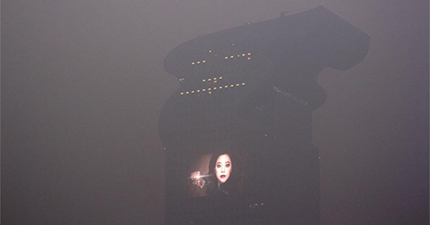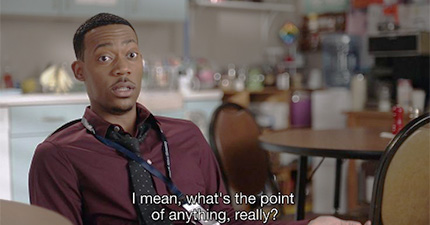In their book Animacies, Mel Y. Chen argues that immunity is not something that is private or personal, enclosed by “an integral and bounded self” but an external and social process that is shared by all life forms in an environment. “Immune systems are themselves constituted by the intertwinings of scientific, public, and political cultures together.”
The word “immunity” comes from the Latin word immunitatem, which means "exemption from performing public service or charge, privilege." Immunity is a privilege because freedom is a privilege. People who benefit from immunity are people who are not obligated to take on acts of public service.
COVID-19 is much worse in the West than anywhere else. It is much worse in places that seem to shut down and then open up with no strategy. The results have been disastrous. The only strategy that Trump contemplates at all was “herd immunity.”
Herd immunity is what happens when enough people have been exposed to a virus that it has a hard time spreading. For herd immunity to happen, a large percentage of a population would have to be exposed to COVID-19 and develop immunity.
The work that essential workers are expected to do is the work of immunity. Since benefiting from immunity is the state of having a privilege or exemption from doing a public service, not having immunity or having to develop immunity is the act of having to do that public service. Exposure to the virus and the development of an immune response seems to be a public service. This immune response is also labor.
People don’t usually use the word “herd” to talk about other people. It’s a dehumanizing way to talk about large groups of people. We don’t usually use dehumanizing language to talk about people who have the privilege of being humanized. As Donna Haraway notes, we started talking about people in the language of statistics, and population, and as “herds” when the modern prison was invented. The dehumanization of large groups of people is not a neutral act but one that comes from the prison industrial complex.
The people who would benefit from herd immunity are not the same people who are put into the position of doing the work of having an immune response. Herd immunity is when herds protect humans. Herds are people who are dehumanized and humans are people who have the privilege of being humanized.
When I was little, I remember watching this really popular cartoon about cats who were cops. The cats were all uniformed and the series focused on their feud with the mice. In one of the episodes of the cartoon, the cats and the mice were both shrunken. They became the size of a blood cell. Within a human body, the police (who were also cats) became white blood cells while the bad guys (who were also mice) became pathogens.
A lot of the images through which we think about white blood cells and immune responses come from cop propaganda. In this way, illness becomes a metaphor that is realized and constructed by public policy. Immune systems are social agreements that not all of us consented to. They’re choices that were made for us before we were born. For us to reconstruct immunity, we will have to earn our hearts back.
1 of 188
>>>


